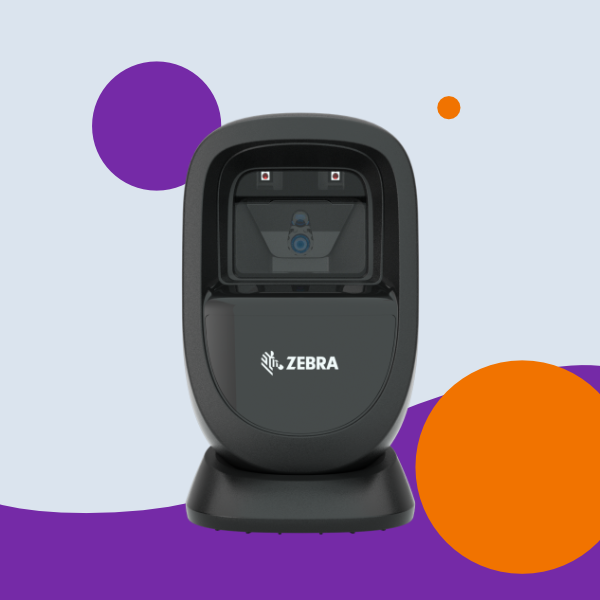Affordable Barcodes Scanners for Small Business
Affordable Barcodes Scanners for Small Business
Blog Article
Picking the Right Barcode Scanner for Your Company Needs
Choosing the appropriate barcode scanner for your organization requires a nuanced understanding of your specific operational demands and environmental problems. Factors such as scanner type, rate, and compatibility with existing systems play a pivotal duty in establishing the ideal choice.
Understanding Barcode Scanner Types
When it comes to picking a barcode scanner, understanding the numerous types readily available is important for meeting details organization needs. Barcode scanners can be categorized into a number of kinds, each created for various applications and atmospheres.
Portable scanners are one of the most common, offering transportability and ease of use, making them appropriate for retail and stock monitoring. They typically link via USB or Bluetooth, supplying flexibility in procedure. Fixed-mount scanners, on the various other hand, are created for high-volume scanning applications, commonly found in setting up lines or check out counters. These scanners are installed in a stationary setting, enabling quick scanning of numerous items in sequence.
One more kind is the mobile computer, which incorporates scanning capacities with computing power. These gadgets are excellent for field operations or stockroom monitoring, making it possible for data collection and real-time stock tracking. Furthermore, there are industrial scanners that are developed to stand up to harsh settings, such as extreme temperatures or exposure to dirt and dampness.

Trick Features to Consider
What vital attributes should businesses focus on when choosing a barcode scanner? Scanning speed is vital, as faster scanners enhance functional efficiency, particularly in high-volume settings. The scanner's capacity to review various barcode layouts is additionally important; guarantee it supports popular kinds like QR codes, UPC, and Code 128 to fit diverse inventory products.
Sturdiness is one more crucial attribute, especially for services in tough setups. Look for versions that are constructed to hold up against decreases, dirt, and moisture. In addition, consider the connectivity choices available; whether you like USB, Bluetooth, or Wi-Fi, the right connection can enhance assimilation with existing systems.

Assessing Your Organization Atmosphere
To effectively pick a barcode scanner, services need to analyze their specific operational environment. This assessment consists of assessing the physical design of the work space, the nature of the items being checked, and the normal problems under which scanning occurs. A retail setting may need handheld scanners that can rapidly refine deals at the check look at here out, while a storehouse setting might benefit from ruggedized scanners developed to endure harsher conditions.
Additionally, think about the quantity of scanning called for. High-throughput settings may necessitate advanced scanning technologies, such as fixed-position scanners or mobile tools that can run efficiently in hectic circumstances. The integration capacities with existing stock management systems also play an essential duty; make sure the picked scanner can seamlessly get in touch with software platforms in usage.
Additionally, assess the potential for development and scalability. A scanner that meets existing needs could not be enough as service expands. By thoroughly analyzing these aspects, organizations can pick a barcode scanner that not just meets prompt demands yet also supports long-term operational effectiveness and versatility. This calculated strategy eventually contributes to smoother procedures and improved efficiency.
Budgeting for Your Scanner
Having actually evaluated the operational setting and determined the particular needs for a barcode scanner, the following step includes mindful budgeting to make certain a wise monetary investment. Developing a budget plan begins with identifying the total prices associated with the scanner, including first acquisition rate, operational costs, and possible maintenance costs.
When selecting a barcode scanner, consider the series of available options, from handheld devices to fixed-position scanners, as prices can differ dramatically. It is important to balance cost with performance; choosing an extra budget friendly design may cause increased operational inadequacies if it does not meet your company needs.
Along with the equipment, factor in costs connected to software program, training, and possible upgrades. While it may be alluring to decrease upfront expenditure, buying a top quality scanner that straightens with your functional demands can generate long-term financial savings with enhanced efficiency and decreased downtime.
Finally, consider the total expense of ownership, which encompasses the scanner's life-span and possible resale worth. By meticulously planning your budget plan, you can ensure that your financial investment in a barcode scanner will enhance your operational performance and financial performance.
Assimilation With Existing Equipment
Incorporating a barcode scanner with your existing systems is critical for optimizing its efficiency and making sure seamless procedures. barcodes scanners. A well-integrated scanner enhances process performance, decreases mistakes, and speeds up data processing. When selecting a barcode scanner, consider compatibility with your existing software and hardware facilities, including your site here inventory monitoring systems, point-of-sale (POS) systems, and venture source planning (ERP) solutions
Examine whether the scanner makes use of standard methods such as USB, Bluetooth, or Wi-Fi, which can assist in easy combination. In addition, assess whether the scanner's software he said application supplies APIs or SDKs that enable modification and integration with proprietary systems. This is particularly important for businesses with special operational demands.
As your company expands, your systems must be able to accommodate additional scanners and handle boosted information volumes without considerable reconfiguration. Eventually, spending in a barcode scanner that flawlessly incorporates with your existing systems will certainly yield long-term advantages, boosting accuracy, efficiency, and general productivity within your procedures.

Final Thought
To conclude, selecting an appropriate barcode scanner demands a thorough analysis of different variables, consisting of scanner types, important features, and the certain service environment. Correct budgeting for both procurement and operational prices is vital, alongside guaranteeing compatibility with existing systems. By carefully thinking about these aspects, businesses can improve effectiveness and performance, eventually leading to improved functional results. The right barcode scanner functions as an important device in enhancing processes and promoting effective supply management.
Report this page